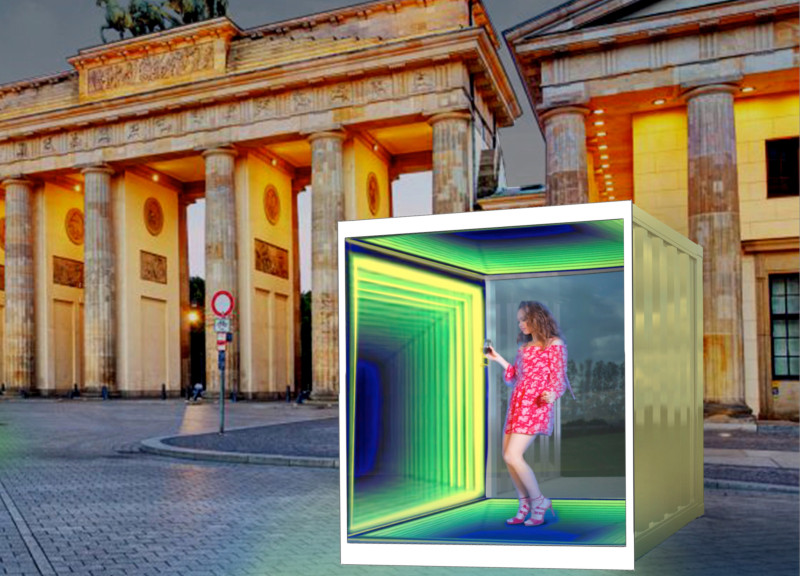5 key facts about this project
The Infinity Box is an innovative design that uses reflection, light, and depth to create an engaging experience. Central to its concept is an infinity mirror that captures the viewer’s attention. The setting offers a modern context where the structure serves both functional and aesthetic purposes, inviting interaction and a new way of experiencing space.
Design Concept and Layout
The project includes well-defined sections identified as AA and BB. Each section serves a specific function while promoting easy access and interaction. The organization of these spaces reflects careful planning, enhancing the user experience. This layout creates a connected environment, allowing people to navigate seamlessly between areas while appreciating the overall design intent.
Role of the Infinity Mirror
At the heart of the design is the LED infinity mirror, which consists of mirrors, LEDs, and one-way mirrors. Together, these components create a unique atmosphere filled with depth and complexity. The reflective qualities encourage users to engage with their surroundings in new ways and enhance the theme of infinity. This aspect captivates visitors, allowing them to explore spatial boundaries in a different light.
Materials and Sustainability
The project features materials like Plexiglas and framing elements, which contribute to the design's appearance and structural strength. These choices allow for the manipulation of light, a key element in delivering an immersive experience. Additionally, the inclusion of solar panels illustrates a commitment to sustainability and energy efficiency, aligning the design with contemporary environmental practices.
Exploratory Design Details
The overall appearance emphasizes minimalism and transparency. Light plays a significant role, creating various visual effects throughout the Infinity Box. As the light changes, so does the perception of the space. This design detail reinforces the concept of infinity, encouraging exploration and interaction, making each visit a unique experience.


















































